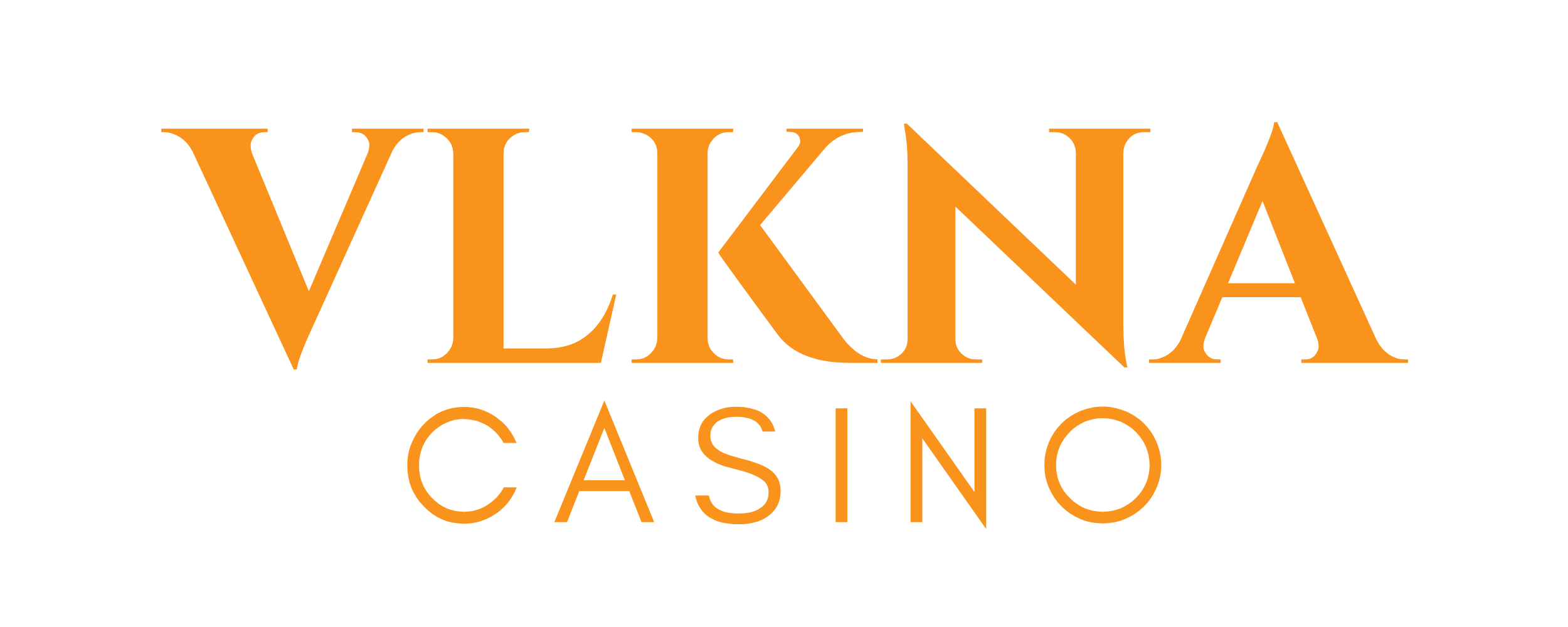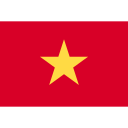Why Legal Readiness Matters — Even Before Launch
Online gambling is evolving fast — not just in terms of technology, but in terms of regulation. More countries are formalizing frameworks, enforcing standards, and cracking down on grey-area platforms. The Philippines is one of the most active battlegrounds in this shift.
With millions of players, a strong culture of mobile payments, and a population hungry for entertainment, the PH market is full of opportunity — but also scrutiny. And at VLKNA, we’re not treating legal clarity as a post-launch task. We’re engineering for it now.
This article explains:
- What the legal situation is (and isn’t) in the Philippines
- How VLKNA is preparing to meet both global and regional standards
- Why transparency is a business advantage — not just a legal checkbox
🧭 Our Philosophy
We’re not here to "slip through." We’re here to lead with respect — for players, for laws, and for the future of iGaming. This is not a loophole brand. It’s a long-term ecosystem. And that starts with clarity.
VLKNA is being built for the next decade — not for the next payout.
In the next section, we break down the reality of online gambling laws in the Philippines — what’s regulated, what’s tolerated, and what’s changing fast.
Understanding the Legal Landscape in the Philippines
The Philippines has one of the most complex regulatory ecosystems in Asia when it comes to online gambling. Between government bodies like PAGCOR (Philippine Amusement and Gaming Corporation) and recent crackdowns on illegal offshore operators, the lines between what’s allowed and what’s restricted are constantly shifting.
What Is Regulated?
PAGCOR oversees local e-casinos and land-based gaming operators within the Philippines. Licensed e-casinos (accessible only to Philippine residents) are technically legal and follow strict rules around taxation, KYC, and responsible gambling.
What About Offshore Casinos?
Offshore casinos — like most international sites accessible to Filipinos — operate in a legal gray zone. Here’s what that means:
- Players are not breaking the law by playing on offshore platforms
- Operators must be licensed elsewhere (e.g., Anjouan, Curaçao, Isle of Man) but are not licensed by PH law
- Advertising to PH audiences is sensitive — especially via influencers and social platforms
- Payments through e-wallets like GCash are tolerated but not officially endorsed
Recent Developments
Since 2023, there has been a noticeable shift in enforcement. Content creators were fined, Telegram groups were shut down, and platforms without KYC were blacklisted. The message from authorities is clear: compliance is no longer optional, even for offshore brands.
The Rise and Fall of POGOs
POGOs (Philippine Offshore Gaming Operators) were once the workaround — licensed by PAGCOR but serving foreign players. However, due to political pressure, security risks, and labor controversies, the POGO framework is being dismantled. This signals a move away from tolerance-based models toward full formalization.
Bottom Line
Today, players are free to access offshore platforms like VLKNA. But tomorrow? Regulations could tighten. That’s why we’re building VLKNA with forward compliance in mind — so we’re not surprised by the future. We’re already aligned with it.
We’re building VLKNA as if regulation was already here — because soon, it will be.
Next: let’s talk about our approach to transparency. Not just in how we talk to players — but how we structure the entire site around honesty, clarity, and long-term legitimacy.
Transparency Isn’t Cosmetic — It’s Core UX
Most platforms confuse transparency with disclaimers. They bury key rules in long T&Cs, hide bonus conditions behind tooltips, and hope that players won’t notice the friction until it’s too late.
At VLKNA, we designed everything around clarity — not as a bonus, but as the baseline.
Here’s what that looks like:
- Wagering terms are shown before a user accepts a bonus
- Withdrawal limits are visible by default in the wallet UI
- KYC policies are written in plain English, not just legalese
- Every system message uses real-time status indicators: “In Review”, “Success”, “Need Action”
- Our bonus tracker is built as a live progress bar tied to gameplay — not a math puzzle
Terms Are Not Hidden
We took inspiration from platforms like Wise, Revolut, and Stripe — not just other casinos. That means using tone and layout to earn trust visually, not just contractually.
Every key term or trigger (such as withdrawal caps, bonus eligibility, and session timers) is:
- Accessible from the same screen where the action happens
- Clickable for contextual popups — no tab-switching
- Mobile-first — nothing critical is hidden on mobile UIs
We Designed for Audit Readiness
Every player action is logged and timestamped — not just for internal use, but for possible regulatory review. If ever required, we can provide full user-level snapshots of consent, eligibility, and transaction history.
This isn’t paranoia. It’s planning. Because trust only works if you can prove it.
It’s about infrastructure — and we’ve built ours to hold up under scrutiny.
Next: we’ll show how our legal and compliance strategy is not just aligned with Anjouan — but designed to be portable across multiple regulatory jurisdictions.
Compliance Isn’t a Badge — It’s the Whole Framework
At VLKNA, we’ve structured everything — our payment flows, user interface, data retention policy, and third-party services — around international compliance. Not just because it’s the right thing to do, but because it’s a strategic advantage.
Where We’re Licensed
Our platform is launching under the Anjouan iGaming framework, which requires operators to meet minimum KYC, AML, and payout transparency standards. But we’re not stopping there.
- We follow the FATF AML guidelines even if not enforced locally
- We store data on EU-compliant servers with GDPR-standard encryption
- Our KYC partner uses biometric cross-verification — no manual loopholes
- All transactions (fiat or crypto) are logged with compliance tags for traceability
Why That Matters for PH
Even if Philippine regulators don’t currently require this from offshore brands, that won’t last. We’re building for a world where cross-border transparency will be mandatory.
If and when the Philippines opens a licensing window for offshore casinos that serve local players, we’ll already be ready — with audit logs, user-level compliance data, and a zero-tolerance fraud policy.
Portable Legitimacy
We’re creating a legal and operational foundation that can expand to India, Brazil, Indonesia, or even EU markets — without having to rebuild the house every time.
That means:
- Dynamic terms and policy generation based on player region
- Multi-currency and multi-KYC logic depending on jurisdiction
- Geo-based content filters for legal content segmentation
And that makes us more adaptable, more scalable, and more resilient.
In the next section, we’ll focus on player protection: what tools we offer, how we detect abuse or addiction, and why safety isn't a checkbox — it’s the experience.
Player Protection Is the Experience
Too many platforms treat player protection as a checkbox — a generic Responsible Gaming page and a self-exclusion form hidden in the footer.
We’re doing it differently. Because at VLKNA, safety isn’t an afterthought. It’s an experience layer.
Live Player Behavior Monitoring
We track dozens of player signals to detect problem patterns — including:
- Deposit spikes over 300% in 24h
- Session lengths over 6 hours
- Bonus chasing with back-to-back wallet burns
- Failed login attempts combined with suspicious location data
When triggered, the system may auto-pause bonus eligibility, flag accounts for review, or invite players to take a cooldown window — all without shaming or interrupting.
Self-Regulation Tools
Players can set limits on:
- Daily, weekly, and monthly deposit caps
- Loss caps per session
- Time alerts and session cutoffs
- Full self-exclusion with 24h or 7d delays (no instant re-entry)
All tools are available in the wallet or account panel — not hidden in email support or long forms.
Community Integrity
We actively monitor for syndicate abuse, referral fraud, and multi-account exploitation — not just for legal reasons, but to preserve fairness. When trust erodes between players and the platform, everyone loses.
It’s preemptive, compassionate, and built into the very logic of the platform.
We’re closing this article with a short FAQ and a summary of what all this means for Filipino players — and for the future of online gambling worldwide.
Frequently Asked Questions
Is online gambling legal in the Philippines?
Yes — but only when done through locally licensed platforms. Offshore platforms are not illegal for players to use, but they are not regulated under Philippine law.
How is VLKNA addressing legal requirements?
We are licensed in Anjouan, follow FATF AML standards, and preemptively apply many of the transparency, KYC, and audit practices that regulators require — even if not yet enforced locally.
Will VLKNA apply for a PH license if available?
Yes. If PAGCOR opens a licensing framework for offshore platforms serving PH players, VLKNA will apply. Our infrastructure is designed to be compliant across jurisdictions.
What makes VLKNA more transparent than others?
We show bonus terms before acceptance, offer real-time wallet indicators, publish our legal and RG policies in plain language, and log all sensitive user events securely for accountability.
Is my money and data safe?
Yes. We use SSL encryption, secure servers, third-party fraud detection, and real-time monitoring. Player wallets, sessions, and identities are protected under GDPR-level protocols.
Final Thoughts
Online gambling in the Philippines is on the edge of transformation — from unregulated grey zones to formalized, accountable ecosystems. At VLKNA, we’re not just preparing for that future — we’re already aligned with it.
We believe that trust comes before gameplay, that players deserve honesty before entertainment, and that the next generation of platforms won’t just be fun — they’ll be fair, lawful, and secure.
We're here to set a new standard for what legal, transparent, and player-first casinos can look like.
← Back to blog | What is VLKNA? → | See how we designed for security →
Was this article helpful to you?
We’re building VLKNA with real players in mind. Your feedback helps us improve — even before launch.


 HI
HI
 VI
VI
 ID
ID